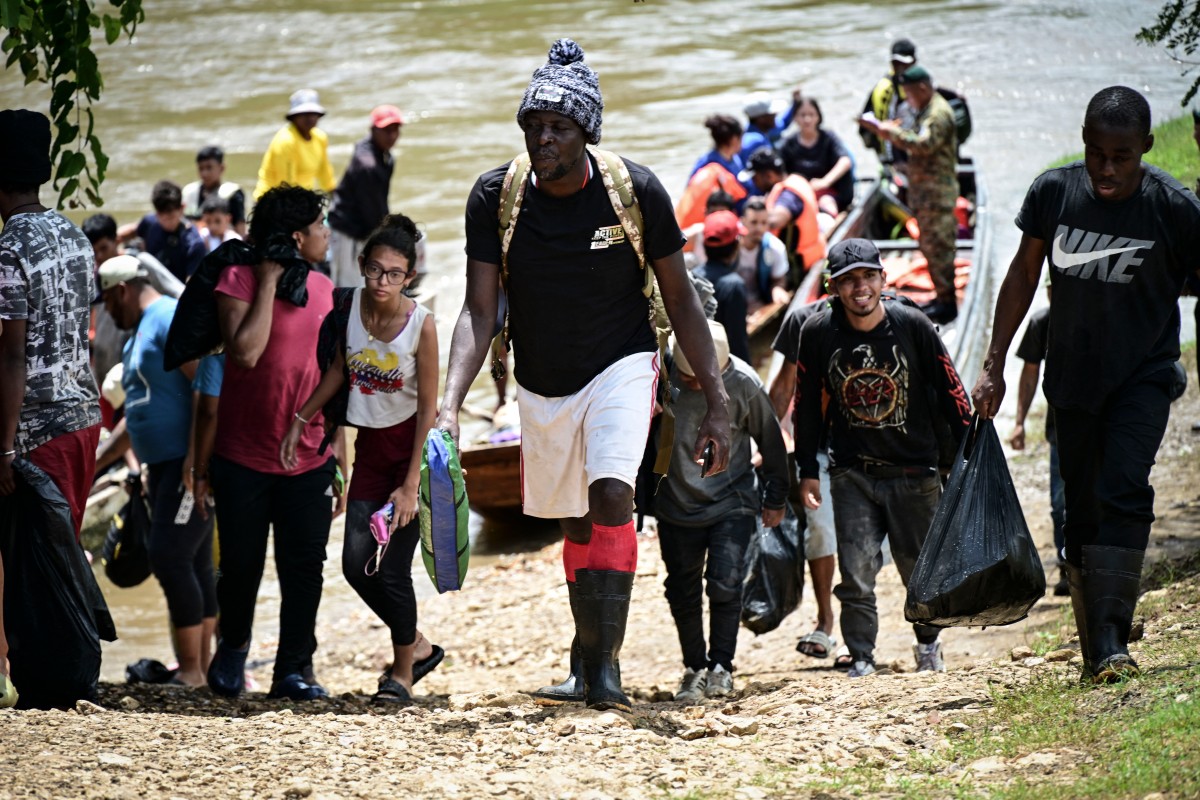Panamanian government evacuates 19 migrants from Venezuela, Bangladesh, Sri Lanka and India stranded on Pacific beaches

At least 19 migrants “Seriously ill” people, including minors, from Venezuela, Bangladesh, Sri Lanka and India have been evacuated from Panama’s Pacific beaches near the border with Colombia, where they had been stranded for weeks with a group of more than 100 people, Panamanian authorities said Monday.
The National Border Service (Senafront) of Panama said in a statement that it “evacuated 19 seriously ill migrants, transferring them directly to the migrant reception station in Lajas Blancas, where they receive specialized medical care.”
They are part of a group of more than 100 migrants who have been stranded for 21 days in the coastal communities of Guayabo, Cocalito and Jaqué, in the province of Darién, on the Panamanian Pacific, as Father Gustavo Rivas, who is present in the area and had warned of the delicate health of these people, told Efe today.
Panamanian authorities have not provided figures on how many people make up the group, which is believed to have used the route – which runs by boat across the Pacific and the last stretch on foot – to avoid crossing the Darien jungle, the border with Colombia used daily by migrants to reach North America in search of better living conditions.
#National | Senafront reports that it evacuated 19 sick migrants to the Lajas Blancas sector pic.twitter.com/mqtA9brMEt
— Radio Panama (@radiopanama) September 9, 2024
What were migrants from Venezuela, Bangladesh, Sri Lanka and India doing on the beaches of the Pacific?
Border police said that “many” of the migrants who are part of the group “stranded in the Darien region” are in “critical health conditions.” Regarding the evacuated migrants, they said that “eight of the victims were men, five women, four girls and two boys from Venezuela, Bangladesh, Sri Lanka and India.”
Senafront activated “an emergency protocol to guarantee the safe transfer of the most vulnerable, reaffirming its commitment to the protection of life in the midst of extremely adverse conditions” and urged migrants to choose “authorized controlled flow crossings” to avoid being victims of “coyotes.”
Father Gustavo Rivas, who has been living in Darien for years, told Efe that around 144 migrants, some of them “very sick,” from China, India and Nepal had been stranded for 21 days in the coastal towns of Guayabo, Cocalito and Jaqué, where – the priest warned – there is an outbreak of dengue.
These communities are hard-to-reach areas close to Colombia and very far from the shelters in San Vicente and Lajas Blancas, in the most urbanized part of the border, where there is humanitarian aid for migrants after crossing the jungle.
“We are asking for them to be taken out,” said Rivas, who is originally from Colombia’s Chocó (on the other side of the border with Panama) but has been working in the community of Jaqué in the Central American country for three years, requesting humanitarian aid from the government to assist the migrants who arrive there.
The Panamanian government wants to reduce the migratory flow through Darien
In his attempt to reduce the migratory flow through DarienThe new Panamanian government, which took office on July 1, has implemented measures such as the installation of “perimeter barriers” (barbed wire fences) or return flights for migrants following an agreement signed on the same day of the inauguration with the United States, which finances them.
At least 244,243 migrants have crossed the dangerous Darien jungle so far in 2024, a decrease of 110,056 compared to the same period last year, which represents a drop of 31%, according to figures released Monday by the Panamanian government.
The new Panamanian government claims that the reduction is due to new policies, and estimates that approximately 320,000 migrants will cross the Darien River this year, a 38% decrease compared to the historic record of 520,000 who crossed last year.
Independent journalism needs the support of its readers to continue and ensure that uncomfortable news that they don’t want you to read remains within your reach. Today, with your support, we will continue working hard for censorship-free journalism!
